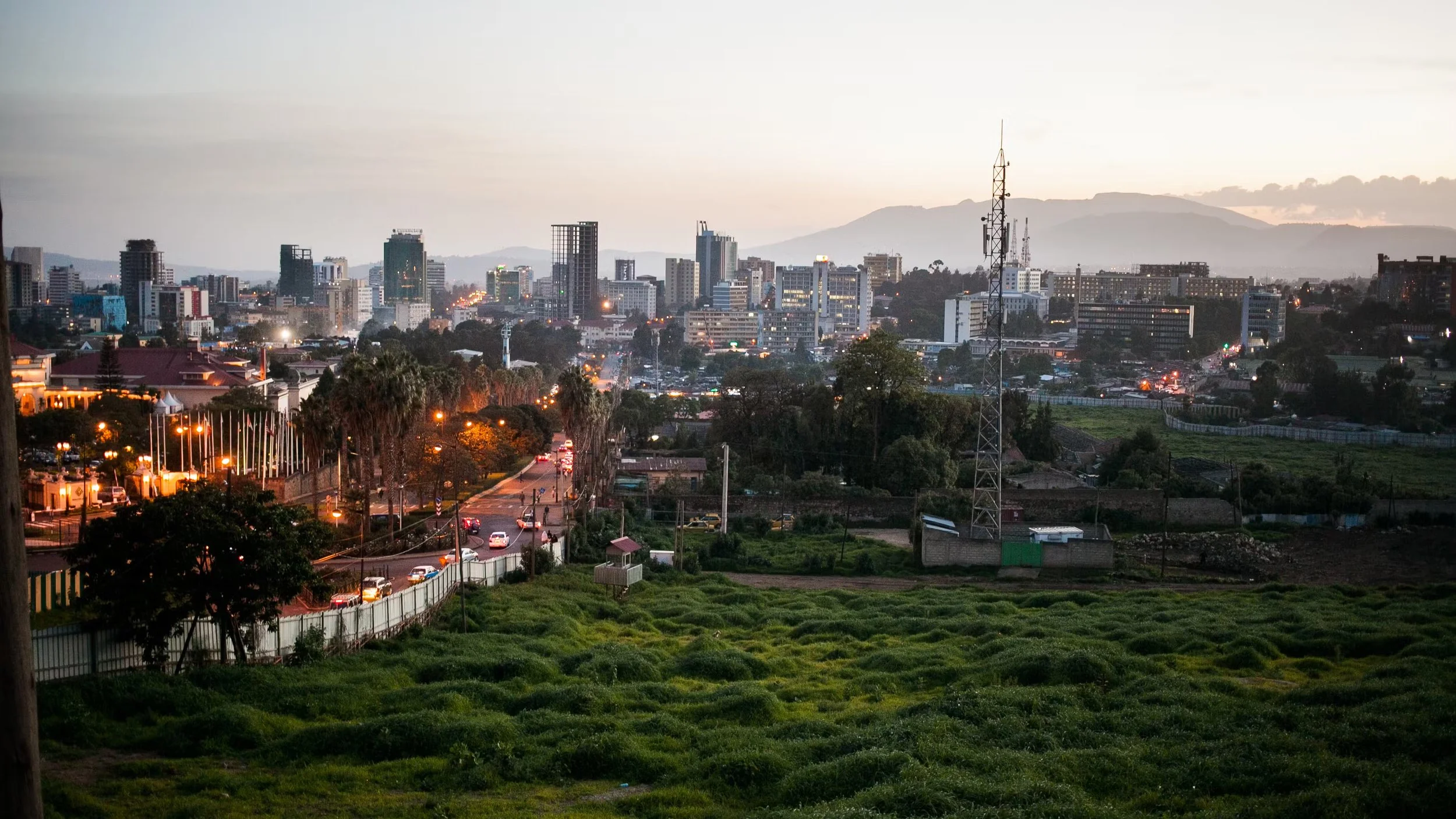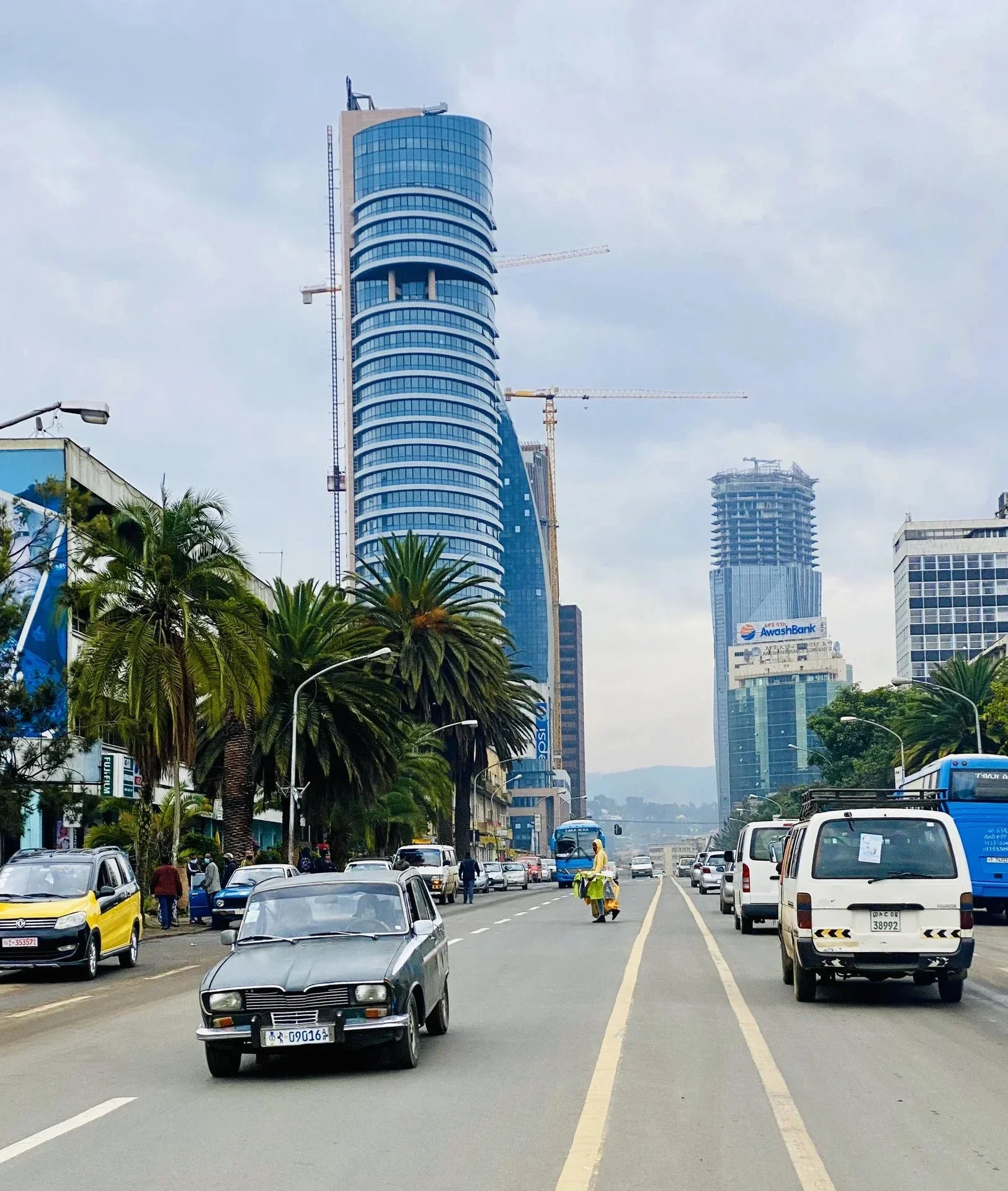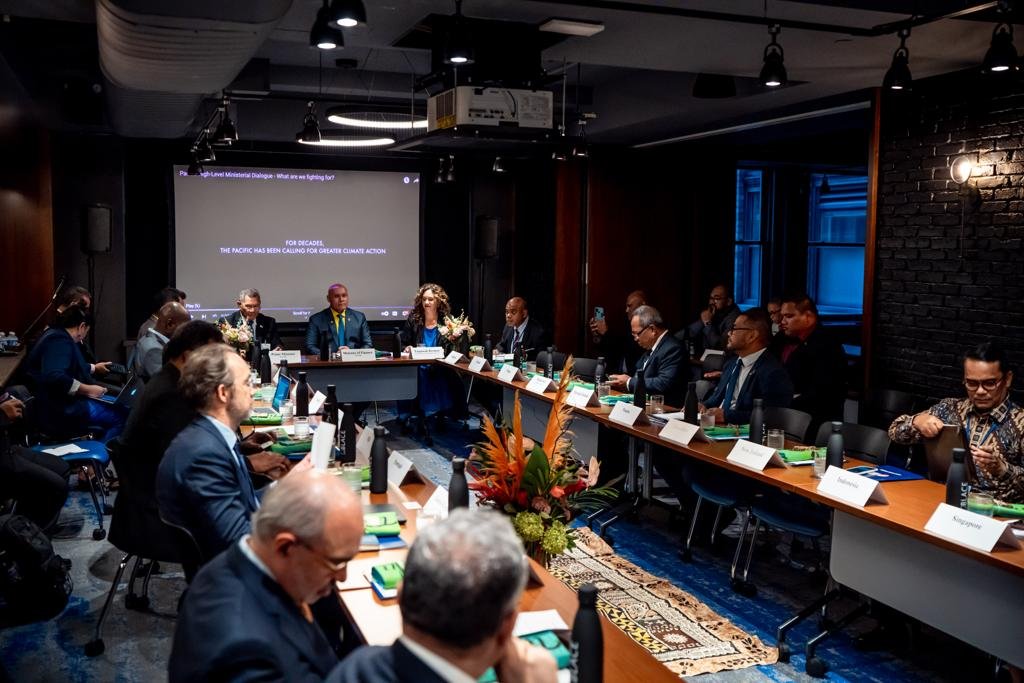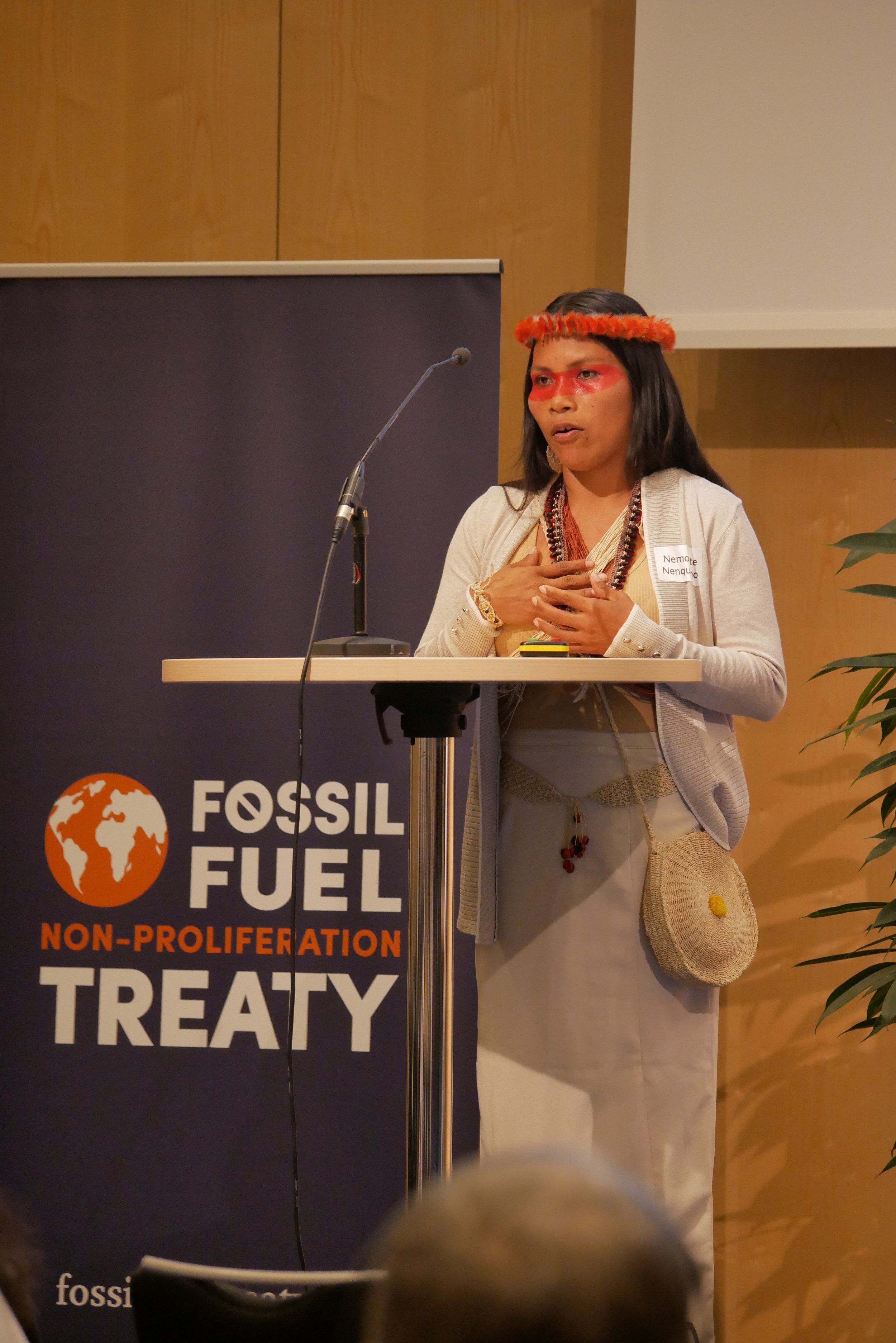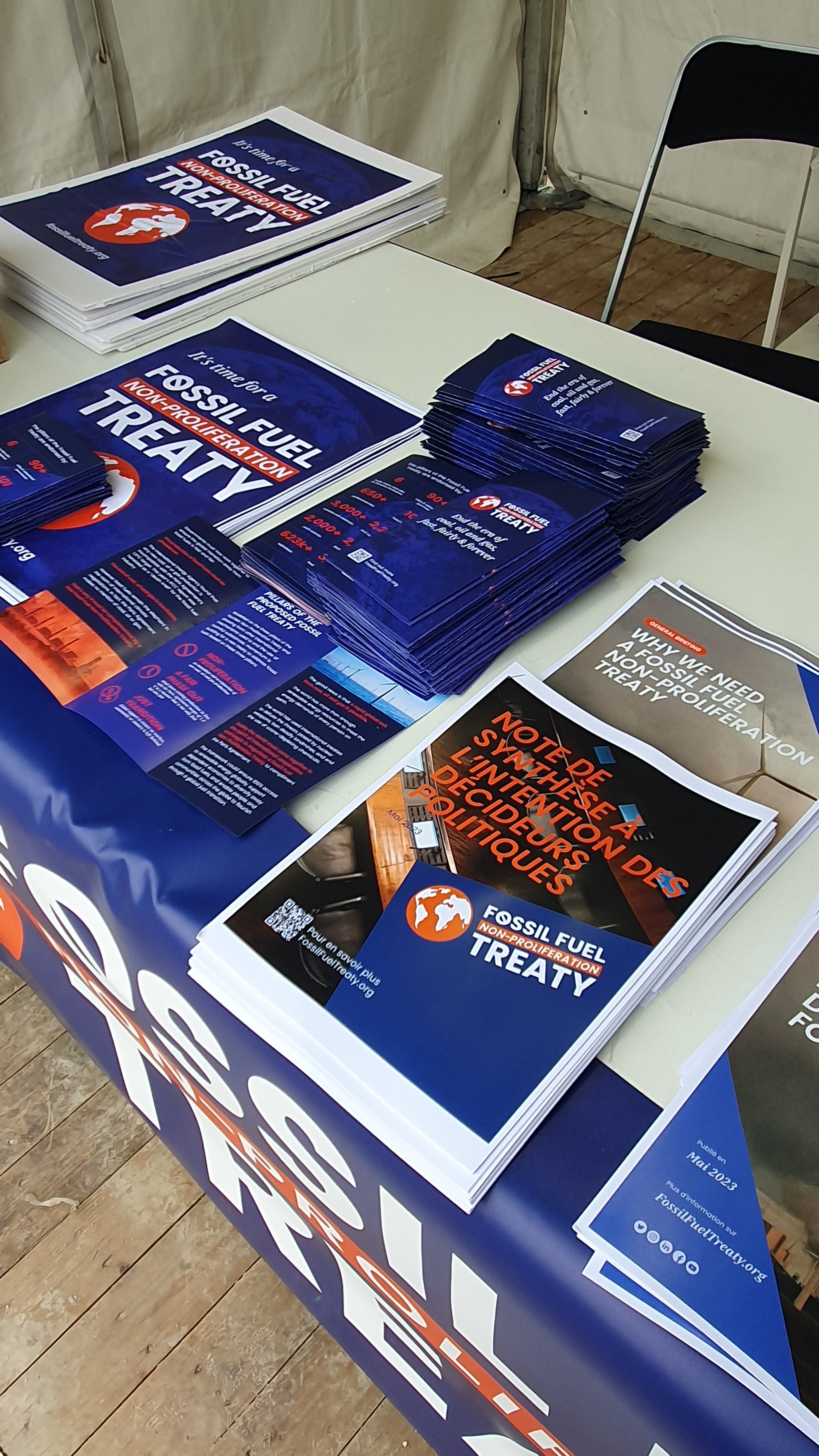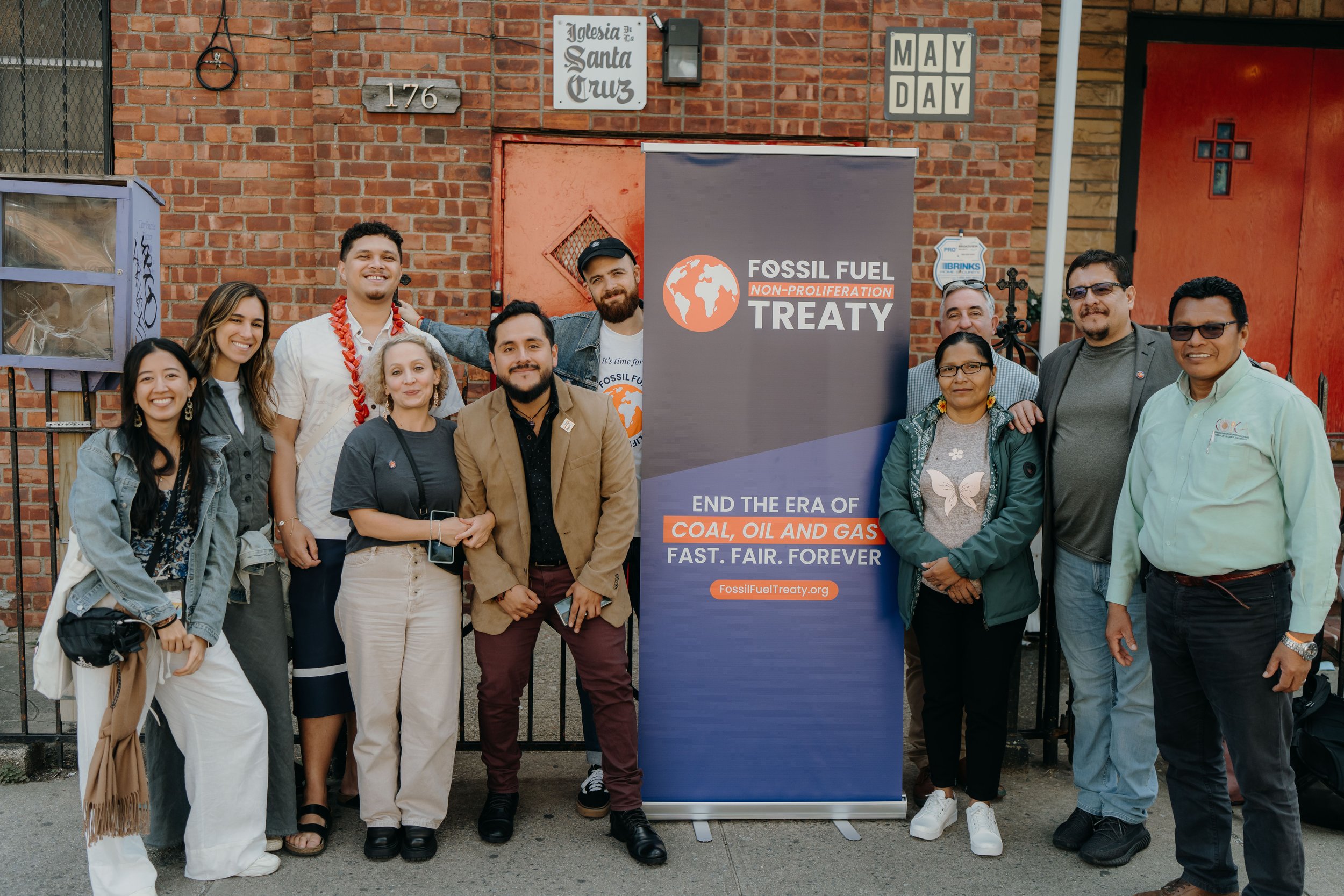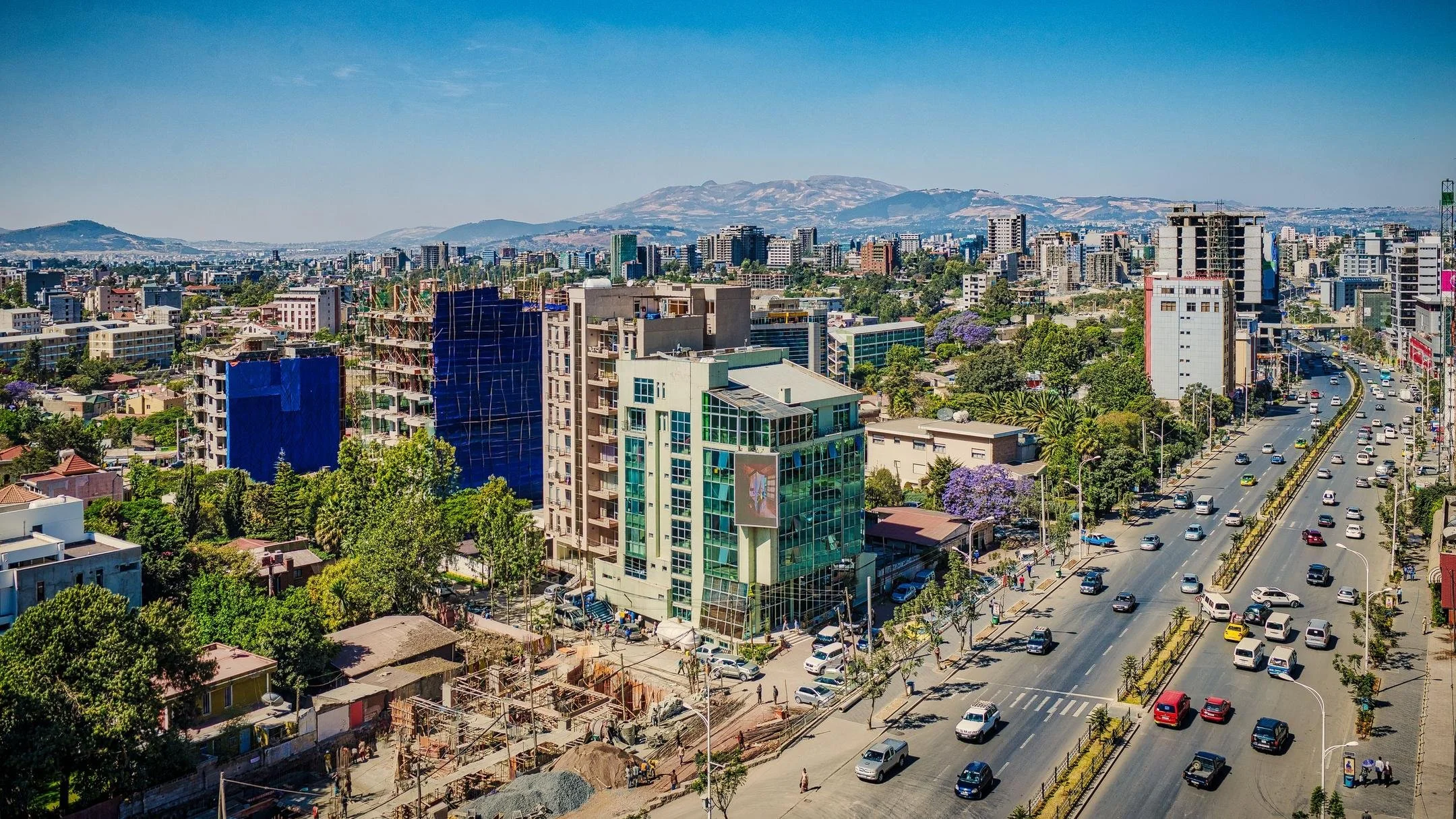
AFRICA CLIMATE WEEK & SUMMIT 2025
As global interventions to address the climate crisis continue to fall short of the urgency and scale of the situation, Africa Climate Week and Summit has set out to shape a more just, inclusive and climate-resilient future.
This is a defining moment for African nations as they convene to map out Africa-led climate solutions to address the crisis.Ahead of COP30, African nations have the opportunity to set the tone for bold climate action at the global level, by championing a fossil fuel phase-out, rejecting “false solutions”, while advancing concrete, actionable plans for a fair and financed transition. Throughout the climate week and summit, the Fossil Fuel Non-Proliferation Treaty Initiative will engage key stakeholders to advocate for climate action and explore how the proposed Fossil Fuel Treaty would support Africa’s energy transition and address the climate crisis. By joining the bloc of 17 nations from the Pacific, Latin America, the Caribbean, and Southeast Asia already engaging in discussions on a Fossil Fuel Treaty, African nations have the opportunity to build a new multilateral instrument - an actionable framework - to reinforce the Paris Agreement and address the fossil-fueled climate crisis.
Our events at Africa Climate Week & Summit-

Gallery Exhibit: All Power to the People- Pan-African Artists Pledge
Where: Studio 11 Art Gallery, Zemilo Hotel Apartment. Addis Ababa
When: Opening night September 1st, 6:00 pm. The exhibit will run from September 1st-9th
A special showcase bringing together selected works from the groundbreaking campaign “All Power To The People-Pan-African Artists’ Pledge” uniting creative voices from across the continent and the diaspora in the call for climate justice.Through bold imagery, cultural memory, and visionary storytelling, these works reaffirm the role of art as both a mirror and a catalyst — reflecting the lived realities of African communities while inspiring collective action for a just and sustainable future.
-

Technical Dialogue
Where: Hyatt Regency Addis Ababa
When: September 4th
A closed-door meeting bringing together technical experts from African governments for an exchange of perspectives on equitable finance mechanisms for the just transition. This technical dialogue will be an opportunity to provide current thinking on just transition finance mechanisms, including debt resolution, renewable energy investment incentives, investment funding and fossil fuel revenue replacement opportunities. The technical dialogue will be co-hosted by the Embassy of Colombia to Ethiopia and the African Union, the Fossil Fuel Non-Proliferation Treaty Initiative, and the African Forum and Network on Debt and Development.
-

Side event - Beyond Emissions: Addressing the Supply Side of Climate Change for a 1.5°C Future
Where: Addis International Convention Centre, Room AP 3
When: September 9th, 9:30 - 11:00 am
Connecting to the ACS2 theme of accelerating global climate solutions, this session will highlight how multilateralism, through frameworks such as the proposed Fossil Fuel Treaty Initiative, are essential to unlock a fair and financed justice-based energy transition and can complement existing climate architecture such as the Paris Agreement.
-

Side event - Energy for Development: Financing Renewables for a resilient African Future
Where: Addis International Convention Centre, Room F2
When: September 9th, 11:30 - 1:00 pm
This event will focus on placing Africa’s just energy transition at the center of the Africa Climate Summit’s theme: “Accelerating Global Climate Solutions and Financing for Africa’s Resilient and Green Development.” It builds on the urgency exposed by the outcomes of COP29 in Baku and the SB62 negotiations in Bonn, where ambition failed to translate into meaningful commitments for implementation.Through dialogue with civil society, technical experts, and frontline communities, the session will explore how Africa can lead a people-centered transition.
-

Side event - Transitioning away from fossil fuels in energy systems: African dialogue on national pathways, levers and opportunities for cooperation
Where: Addis International Convention Centre, Room M9
When: September 9th, 12:00 - 1:30pm
This dialogue will bring together African policymakers, energy experts, researchers and stakeholders to explore pathways for reducing reliance on fossil fuels across the continent’s energy systems. Participants will discuss findings of new research, national strategies, policy levers, and innovative approaches to accelerate the shift toward renewable energy. The session will also highlight opportunities for regional and international cooperation to support a just, equitable, and sustainable energy transition for African communities.
The Fossil Fuel Treaty: an opportunity to turn momentum into actionIn the face of rising regressive climate politics and narratives, the Fossil Fuel Non-Proliferation Treaty offers a crucial response — and global momentum is growing behind it. It is the clear plan the world needs to phase out fossil fuels through an equitable transition. Led by frontline communities and funded by those most responsible. It’s not a distant goal. The shift has already begun.
-
The Fossil Fuel Non-Proliferation Treaty is the needed legal mechanism to support and finance a just transition to a prosperous renewable-powered Africa. The three pillars of the proposed Fossil fuel Treaty are:
A global just transition – a framework for wealthy nations to provide technical support and finance for the transition to renewable energy for countries with less capacity to transition, so that no workers, communities or countries are left behind
Non-Proliferation – ending the expansion of new coal, oil and gas projects everywhere
A fair phase out – equitably phase out existing fossil fuel production in line with our 1.5ºC target with wealthy nations transitioning first and fastest
Momentum is building around the push for a Fossil Fuel Non-Proliferation Treaty, with 17 nations from the Pacific, Latin America, the Caribbean, and Southeast Asia already engaging in discussions to advance a Fossil Fuel Treaty.
It’s time for African nations to join the nations participating in discussions to a Treaty, in order to contribute to shaping the terms and provisions of a Fossil Fuel Treaty that prioritises the needs of African communities, a Treaty that secures transition finance, technology transfer, debt relief and ensure no one is left behind.
As the Paris Agreement focuses on emissions reductions, it does not regulate fossil fuel production. A Fossil Fuel Treaty would complement the Paris agreement by setting binding limits on production, creating pathways for a fair phase-out and transition.
-
Decades of extraction of coal oil and gas in Africa, led by the Global North, has not only failed to meet the continent’s energy needs and enrich the continent but have also worsened injustice, debt and hampered development. The era of coal, oil and gas extraction has largely benefitted European nations, leaving 600 million Africans without electricity access, while worsening the impacts of climate change .
Africa is the most climate vulnerable region, while the continent has contributed the least to the climate crisis. Extreme weather events such as floods, storms, droughts, and wildfires are becoming more frequent and severe and are borne by some of the poorest and most vulnerable in the world. This results in widespread devastation, including loss and damage beyond what people can adapt to - such as loss of lives, livelihoods, damage to homes and communities.
At the Africa Climate Summit, African nations must take decisive action to address the root cause of the crisis - coal, oil and gas. African nations must reject the fossil fuel trap and map out measures towards a people-centered transition that can create jobs, accelerate universal energy access, protect ecosystems, and drive sustainable development for the African people.
Africa is witnessing a surge in fossil fuel investment, led by multinational corporations. $43 billion is expected to be spent on oil and gas projects this year and potentially $54 billion by 2030. West and North Africa are hotspots, while emerging players like Senegal, Ghana, and Côte d’Ivoire are also stepping up exploration.
False solutions such as fossil gas, carbon markets and other unproven technologies allow polluters to keep emitting while delaying Africa’s shift to real and sustainable climate solutions. African nations must reject these distractions and focus on proven, renewable pathways.
Africa is energy rich, but power poor. The continent can leverage her vast solar, wind, and hydro potential and drive the global energy transition, if the transition is funded and fair. The proposed Fossil Fuel Treaty offers the framework to secure finance, technical support and cooperation for an equitable energy transition that delivers power, green jobs, sustainable development and resilience for African communities.
An equitable transition away from fossil fuels to renewables, requires international cooperation efforts that acknowledges the responsibility of wealthy nations to phase-out fossil fuel production first and fastest, while providing financial and technical support to Global South countries in their energy transition.
-
The International Court of Justice Advisory Opinion made it clear that States have binding legal obligations to address climate change, and failing to curb fossil fuel production, consumption, and expansion could constitute an “internationally wrongful act”.
For African nations, which are the most climate-vulnerable, this ruling is a powerful legal tool to demand stronger global action, accountability and reparations in relation to the climate crisis. It provides a basis to press major polluters to stop driving climate breakdown and to demand that they pay up for Loss and damage suffered by our communities.
The ICJ ruling highlighted the need for international cooperation in addressing the climate crisis strengthening the case for a Fossil Fuel Non-Proliferation Treaty, which would foster coordinated global efforts towards the fair phase out of fossil fuels and a funded transition.
Media Briefings and Resources for Africa Climate Action WeekShort briefing notes that can help inform governments, cities and other decision-makers about the case for a Fossil Fuel Non-Proliferation Treaty. Want to organise for a member of the Treaty Support Team to join a briefing? Contact campaign@fossilfueltreaty.org
Contact us.-
For general enquiries contact info@fossilfueltreaty.org
-
For media and event enquiries contact media@fossilfueltreaty.org – this email is being monitored 24/7 by our global communications team.
-
For all other campaign enquiries contact info@fossilfueltreaty.org
-
For organisational partnerships and campaign inquiries contact partners@fossilfueltreaty.org and a member of our Global Partnerships team will reach out
Connect with us for live updates